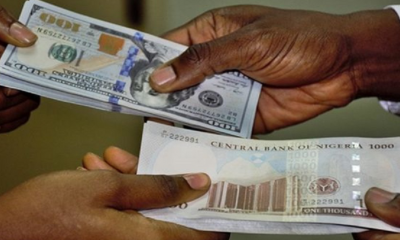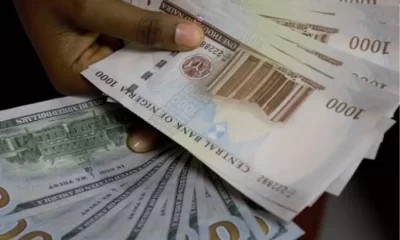By Odunewu Segun
Manufacturing Association of Nigeria has said it is asking the Central Bank of Nigeria to sell dollars directly to its members instead of the usual process of getting it from commercial banks. It has also asked its members what their annual foreign-exchange needs are so that it can give the CBN an indication of how big the weekly dollar sales would need to be
One of the members of MAN, Ali Madugu, Managing Director of Dala Foods Ltd, Kano disclosed this recently while answering questions on the dollar shortage crisis currently facing the country.
Under the current system, the apex bank sells foreign exchange to commercial lenders who then distribute it to their customers, Madugu said. That’s left manufacturers short since the banks often prioritize other businesses and individuals, he added. The MAN hopes to receive a response from the CBN this week, he said.
ALSO SEE: CBN refunds N17.5 billion to BDCs operators
“We’re calling for the Central Bank to start giving to us directly, hand-to-hand, rather than through the banks. Some of our member companies will run out of raw materials next month. Without restocking, what will happen? Thousands of jobs are on the line,” He said
He said the banks have everybody as their customers, “they even have people buying dollars for medical bills and school fees. If the CBN believes the economy must be diversified and manufacturing boosted, they should allocate directly to us”
Nigeria, which derives about two-thirds of government revenue from oil, has rationed dollars and brought interbank foreign-exchange trading to a halt since February last year in a bid to prevent the naira falling. The measures have all but pegged the currency at 197-199 per dollar. As dollars have become scarcer, the black-market exchange rate has plummeted to 310, while forwards prices suggest the naira will fall to 291 in a year.
The apex stopped weekly auctions to non-bank money-changers in January in a bid to save its foreign reserves. Those have fallen 10 percent to $27.8 billion in the past year as Brent crude prices have declined one-third to about $39 a barrel.

 Health5 days ago
Health5 days ago
 Entertainment6 days ago
Entertainment6 days ago
 Crime5 days ago
Crime5 days ago
 Education7 days ago
Education7 days ago
 Health7 days ago
Health7 days ago
 Comments and Issues6 days ago
Comments and Issues6 days ago
 Football6 days ago
Football6 days ago
 Latest6 days ago
Latest6 days ago












